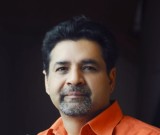By Agha Iqrar Haroon

In a recent cross-border attack by the Afghan forces, 11 Pakistani were martyred and over 50 injured including children, women and soldiers of Pakistan Army. The Afghan forces attacked a security forces-guarded civilian team that was busy in house counting and population census near the Chaman border.
Ironically, May 5 attack took place in the same week after top civil and military officials from Pakistan including Director General Inter Service Intelligence (ISI) Lt General Naveed Mukhtar, Speaker National Assembly Sardar Ayaz Sadiq and Chief of General Staff (CGS) Lt General Bilal Akbar concluded their visits to Kabul.
What message has been sent by Kabul after such high-profiled visits, does not need hefty books of logic to understand.
Pakistan believes that its archrival India is behind deteriorating Pak-Afghan relations; otherwise, Afghans are its brothers. However, history of Pak-Afghan relations says otherwise.
There is no doubt that the Indian intelligence agency RAW is present in Afghanistan since early 2000 to destabilize Pakistan but Pakistan is shy to comment who invited RAW and what for?
Pak-Afghan relations since 1947 are a saga of one-sided Love Affair but this love affair is little different than normal love affairs.
In this tale of love and hate; one character (Pakistan) ruined its life (society) by adopting children of others with whom it is passionately in love while the loved-one responded with bullets and bloodsheds.
Cross-border clashes at Pak-Afghan border are as old as 1955 when Afghanistan launched massive attacks in border areas and both countries withdrew their diplomatic staff, and Pakistani Embassy in Kabul and consulates in Kandahar and Jalalabad were attacked by government-sponsored mobsters.
In 1960, Afghan armed forces attacked the Pak-Afghan border with tanks and Pakistan Air Force had to intervene to secure borders. In year 1961, diplomatic relations between Pakistan and Afghanistan became tense again and cross-border transportation halted at the Torkham border for over a year.
From 60s to mid of 70s, Pak-Afghan relations kept strained and then Pakistan pitched itself against Kabul when Soviet troops entered Afghanistan on the invitation of Kabul government. Pakistan became a front-line state for “Operation Cyclone” launched by the United States against Soviet troops and Pakistan invited millions of Afghans to take refuge inside Pakistan. Afghans did not come alone to Pakistan but with culture of drugs, AK-47, radical Islam and extremely closed social norms and all these social ills spread all over Pakistan because majority of refugees refused to stay in refugees camps and started living with their relatives inside Pakistan who helped Afghans in buying properties, national identity cards, passports, businesses and a cultural wedlock surfaced within first decade. A Pak-Afghan generation was born inside Pakistan who still does not believe in Pak-Afghan border because their relatives are living both sides of Pak-Afghan border. This development was a disastrous for tolerant and liberal Pakistani society as it had to tolerate all kind of intolerant activities including the radicalism and terrorism that cost killing of 70,000 Pakistan during the last 10 years.
The strategy of “Strategic Depth” adopted by the Pakistani establishment made Pakistan a “backyard” for the Afghan society where drugs and weapons from Afghanistan and radicalism from Middle East were dumped.
Pakistan thought that hosting over 3.5 million Afghans would help it to achieve love relations with Afghans and future Afghan governments. However, it was a dream of Pakistan that never came true. Three and half million refugees who were invited to Pakistan are now over (estimated) 12 million as calculated birth rate by international agencies indicates that 60,000 to 80,000 children are born by Afghan refugees every year in Pakistan.
The former Soviet Union withdrew from Afghanistan in 1989 and its withdrawal was followed by civil war that is still going on inside Afghanistan. Pakistan allegedly pitched Taliban to secure peace in Afghanistan in early 1995 but their rule ended in year 2001 when US-led international forces attacked Afghanistan after 9/11 great tragedy.
There is no independent government in Afghanistan since launching of US-led government of Hamid Karzai who had been a refugee himself in Pakistan after the Afghan-Russo War. Hamid Karzai had been very tough on Pakistan as the Afghan president and accused Pakistan of every misadventure that happened inside Afghanistan. Pakistan thought that Hamid Karzai was playing in hands of India and relations would be cordial when new President would take over the government in Kabul. However, it was another dream of Pakistan that never came true and new President Ashraf Ghani became even tougher on Pakistan although he was also a refugee in Pakistan for years after the Afghan-Russo war started in 1978.
During Hamid Karzai’s era, Pak-Afghan border became hot and Afghan soldiers started attacking Pakistani military outposts. First incident took place almost 10 year ago on May 13, 2007.
Since May 13, 2007, cross-border attacks from Afghanistan to Pakistan has never stopped. The worst attack on Pakistan by the Afghan forces was last year on June 13, 2016 when the Afghan Army used artillery and martyred several Pakistani soldiers including Major Ali Jawad Changezi at the Torkham border.
Nobody knows for how long Pakistan will follow its policy of One-Sided love affair for Afghans and how many more Pakistanis would be killed by the Afghan government?
I remember a song by Elvis Presley from his 1956 debut album that says:
If you wanna be loved,
baby you gotta love me too
‘Cos I ain’t for no one-sided love affair:
Well a fair exchange ain’t no robbery
An’ the whole world knows that it’s true
Would Pakistan send such message to Afghan government?
Disclaimer:
The views and opinions expressed in this article/Opinion/Comment are those of the author and do not necessarily reflect the official policy or position of the Dispatch News Desk (DND). Assumptions made within the analysis are not reflective of the position of Dispatch News Desk.
